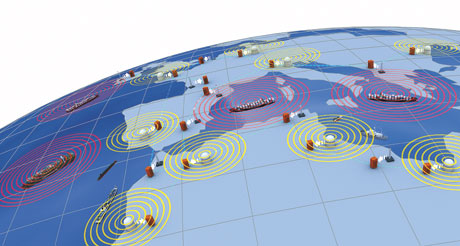Iraq: one size fits none
 Friday, September 21, 2007 at 5:19AM
Friday, September 21, 2007 at 5:19AM ARTICLE: "Migration Complicates the Future Look of Iraq," by James Glanz and Alissa J. Rubin, New York Times, 19 September 2007, p. A1.
OP-ED: "Shaky Allies in Anbar," by David Ignatius, Washington Post, 20 September 2007, p. A21.
ARTICLE: "India's Long-Established Ties With Iran Straining Alliance With U.S.," by Rama Lakshmi, Washington Post, 20 September 2007, p. A15.
The ethnic separation process, we are told, is more complex than the "soft partition" realists like me would have you believe, so sayeth the Iraqi Red Crescent in a new report.
Turns out there has been a lot of separating going on, with 3 clear ethnic divisions emerging, but with a Baghdad center that's still highly mixed. And yes, even within those divisions, there is some mixing.
This, we are told, makes the notion of the soft partition, or the creation of semi-independent states within a loose federal structure, far harder to imagine or achieve.
I see this argument as a red herring. No one expects sectarian purity as the going-in requirement. Indeed, having minorities within each of the three is important, giving each a reason to interact on such issues and to learn what it takes to accommodate "others" within their national identities. Sooner that happens, the faster the political reconciliation comes in the larger sense.
None of this will be easy or fast. We need to focus on direction, not degree.
What worked with the Sunni tribes, won't necessarily work with the Shia, and to the extent it does, as Ignatius points out, this isn't nation-building as far as Iraq is concerned.
In reality, this is nation-building as far as the Iraqs (Kurds, Sunni, Shia, Baghdad) are concerned. Without security, nothing gets restarted and without restarting economic activity, there's little for anybody to compromise over (like we're watching already with the Turks and Kurds).
For Iraq the project to unfold in its bottoming-out phase, each of the three major regions needs to find some stability, which means some stabilizing connectivity with its immediate neighbors. Why Kurdistan works is because Turkey is making money like crazy as its great supplier and buyer. Jordan's the obvious partner with the Sunnis (to deal with them is to find them in Amman, just like Ignatius did). And with the Shia, you know who the stabilizer ends up being, whether we like it or not.
That's why I don't agree with conflating the Iraq situation with the Iran situation. It just doesn't fit the reality of Iraq's sequencing, nor does it work with the reality of Iran's place in the world, which involves it increasingly with Russia, India and China.
This roll can quickly get stuck on one big rock. Iran ain't going anywhere, and no amount of scapegoating it for Iraq is going to get us what we really want and need there.












